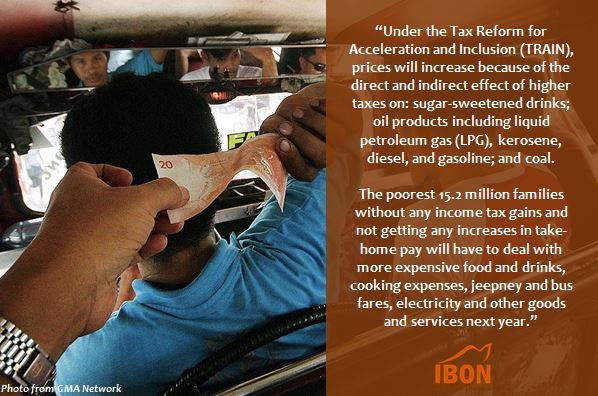Trade deals were stalled mainly due to large developed countries’ differences at the recently concluded World Trade Organization (WTO) 11th ministerial conference (MC-11) in Buenos Aires, Argentina. The bigger powers especially the United States (US) and the European Union (EU) pushed their own development agendas and set aside that of the lesser economies, while accusing the WTO to be biased for certain countries.
This crisis of a standstill highlights the intense maneuvers of the world’s dominant powers in protecting their own economies. On the other end, underdeveloped countries like the Philippines can only expect more biased global trade and investment mechanisms like the WTO. These will facilitate how the big countries thrive at the expense of the smaller ones, thanks to the facilitation of the latter’s national governments.
The shift. The disagreements that stalled the WTO is rooted in how the world’s most powerful countries are shielding their economies from the onslaught of globalization. The situation has only gotten worse since the 2008 global financial crisis. The year 2016 for instance saw the lowest global gross domestic product (GDP) in three years at 2.4%, according to the World Bank, with the EU, US and Japan experiencing significantly slow growth in the same period. Of the total US$217-trillion ballooning global debt, meanwhile, one-third is by the US alone, or two percentage points bigger than the combined debt of the poorest countries across the globe including the Philippines.
Market-oriented policies promoted by developed countries have taken their toll on the global economy especially underdeveloped nations. For instance, the International Labour Organization (ILO) conservatively expects the ranks of the global unemployed to exceed 200 million this year. Over 1.4 billion of those with jobs are employed in low-paying and insecure work – especially in the Latin Americas, Asia and Africa. Workers’ wages are pegged at low rates and 2015 saw the slowest wage growth recorded in four years at 1.7 percent.
The repercussions of globalization have triggered the superpowers to increasingly turn to protectionist measures to keep market-oriented mechanisms from affecting their own industries. Yet, the crisis also drives them to persist in wielding neoliberal policies in order to fully utilize the human and natural resources of less developed countries in the continuous drive for profit.
The US’ position to shift from multilateral trade agreements to smaller regional and bilateral deals that it can dominate to push its ‘America First’ agenda would be the biggest factor in the disagreements that stalled the WTO. The US has expressed dissatisfaction towards WTO’s enforcement of existing trade rules particularly against countries it feels are employing trade distorting measures such as China.
On the other hand, the European Union (EU), which appears satisfied with its current level of trade protection, is seeking greater market access and deregulation in other WTO-member countries. Yet, it unites with the US and Japan in trying to restrain China from using WTO rules and technicalities to its advantage.
Standstill. Against this backdrop of big power rivalry, underdeveloped countries were unable to get even incremental reforms. The WTO still restricts public stockholding for domestic food security. Special Safeguard Mechanisms (SSM) for agriculture remain unworkable. Developed country subsidies that undermine small farmer and fisherfolk livelihoods in backward agrarian economies around the world remain.
Nonetheless, dragging negotiations have forestalled efforts to expand the mandate of the WTO and open up economies even more. Proposals to take up investment liberalization, discipline domestic regulation, and discuss e-commerce and restriction of fishing subsidies that would have immediate and far-reaching adverse effects on underdeveloped countries did not advance.
The abrupt barring of civil society representatives from participating in MC-11 also confirms the nontransparent and undemocratic nature of the WTO.
Redirect. The wealthiest 1% of the world including the highest-paid executives and owners of the biggest companies are the ones that benefit from governments’ market-oriented policies. According to Oxfam International, the combined wealth of the world’s eight richest individuals of US$405 billion is equivalent to the combined incomes of the 3.6 billion poorest.
The existing global trade and investment system remains grossly inequitable and disadvantageous to underdeveloped countries. This is among the biggest factors creating poverty, worsening inequality, destroying the environment, and indeed creating the conditions for political violence and repression in the Philippines and so many other countries around the world. That governments, such as the Philippines’, continue to implement neoliberal measures from local policies to trade deals like the WTO, keeps underdeveloped countries at the losing end.
The challenge remains to redirect nations towards a more just global order upholding human, economic and social rights. The farmers, workers, informal sector workers, and low-paid employees of the world will be better served if the national governments assert their economic sovereignty beyond the WTO.



